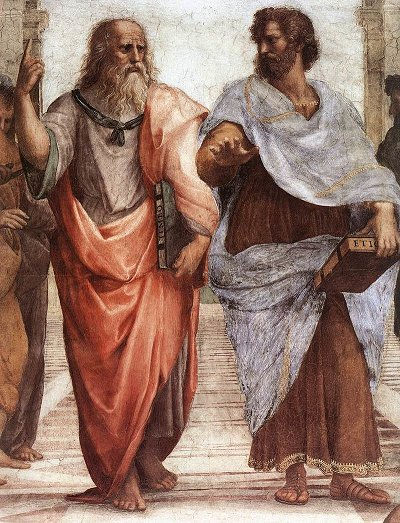Avicenna (Ibn Sina) Medieval Islamic Scientist
- Sylvia Rose

- Sep 7, 2024
- 4 min read
Avicenna also known as Ibn Sina, an Islamic visionary whose contributions span various including philosophy, theology, medicine and alchemy. By the time he's ten he has memorized the Quran. Avicenna influences both Islamic and Western practices.

Early Life and Context
Born in 980 CE in Afshana, near Bukhara in present-day Uzbekistan, Avicenna shows extraordinary intellectual abilities from a young age. His education is steeped in the rich traditions of Islamic scholarship, blending Greek philosophical thought with Islamic theology.
His discoveries in various fields arise amid a thriving intellectual climate characterized by the translation of ancient Greek texts and abundance of new ideas. He lives in Rey, now part of modern Tehran, and serves at the courts of Caliphs.

Avicenna's corpus includes writings on astronomy, alchemy, geography and geology, psychology, Islamic theology, logic, mathematics, physics, and works of poetry. He's thought to have authored about 450 works, of which approximately 240 survive.
One of Avicenna's most enduring legacies is role in bridging the gap between ancient wisdom and modern scientific thought. By blending works of Greek philosophers like Aristotle with Islamic teachings and his own ideas, Avicenna makes lasting advancements in science.

Avicenna's Contributions to Medicine
Avicenna's The Canon of Medicine (Al-Qanun fi al-Tibb) revolutionizes medical education for over six centuries, emphasizing observation, experimentation, and empirical evidence, priming the ground for modern medical practice.
Formulated in the early 11th century, this comprehensive encyclopedia of medical science encapsulates the knowledge of his predecessors, including Hippocrates. It incorporates clinical observations and philosophical inquiries into the nature of health and disease.

The Canon is a catalog of medical facts in five books. It also encompasses theories of causation, importance of diagnosis, and the utility of pharmacology. It's widely used in both the Islamic world and Europe and remains a standard medical textbook until the Renaissance.
Alchemy and the Quest for Knowledge
Avicenna's contributions to alchemy are significant. In the context of the 11th century, alchemy represents a blend of science and spirituality and a search for both material and spiritual purification. In Arabic the words for chemistry and alchemy are the same.

Avicenna's writings on alchemy contribute to the transformation of this field from a metal-dyeing process with mystical attributions and an ancient medical connection into a discipline stressing the importance of experimentation and observation.
Avicenna is an admirer of Greek philosopher Aristotle. He generally believes in the traditional Aristotelian analysis of existents divided into the constituent elements of matter (madda) and form (sura) which are joined together to form the substance, which Aristotle calls ousia.

He adopts the Aristotelian definition of substance. It's explained as ‘that whose essence does not exist in a subject [of inhesion]’ and explains substance as ‘what subsists without any ‘foreign’ mawdu (subject), but is the subject of inhesion itself’.
Unlike Aristotle, Avicenna emphasizes the union of matter and form does not result in the existence of the substantial compound. According to Avicenna, existence is ultimately bestowed by God.

He sees God as the sole Being who inherently exists. The nature of God, from a Neoplatonic viewpoint, necessitates the world's existence as a natural outcome of God's self-awareness.
One of the most important alchemical achievements of Avicenna is his rationale about the transmutation of metals. While earlier Islamic alchemists experiment with the philosophy of changing the nature of metals, Avicenna challenges these beliefs.

He states,
"Those of the chemical craft know well that no change can be effected in the different species of substances, though they can produce the appearance of such change."
and,
"Only imitations of gold can be formed, because the essential nature of a pure metal can never be altered."
After this, Islamic practitioners and philosophers drop the concept of metal transmutation. In Europe the transformation of other metals to gold and silver becomes a significant quest for kings, patrons and alchemists, but ends up transmuting one's gold into someone else's pocket.

Four works on alchemy attributed to Avicenna are translated into Latin as:
Liber Aboali Abincine de Anima in arte Alchemiae (... on the soul in the art of alchemy)
Declaratio Lapis physici Avicennae filio sui Aboali (Declaration of the Physic Stone of Avicenna to his son Aboal)
Avicennae de congelatione et conglutinatione lapidum (Avicenna on the congealing ... of stones)
Avicennae ad Hasan Regem epistola de Re recta (Avicenna's letter to Hasan the King concerning the right matter)
Avicenna is the first to extract attar of flowers, essential oil typically obtained from rose petals, through the process of distillation. He uses steam distillation to create rose essence, which he incorporates into aromatherapy treatments for heart problems.

Today, Avicenna's legacy persists in various spheres of knowledge. His medical texts and philosophical works are studied not only in historical contexts but are also regarded as pivotal foundations for many modern fields.
Non-Fiction Books:
Fiction Books:
READ: Lora Ley Adventures - Germanic Mythology Fiction Series
READ: Reiker For Hire - Victorian Detective Murder Mysteries


